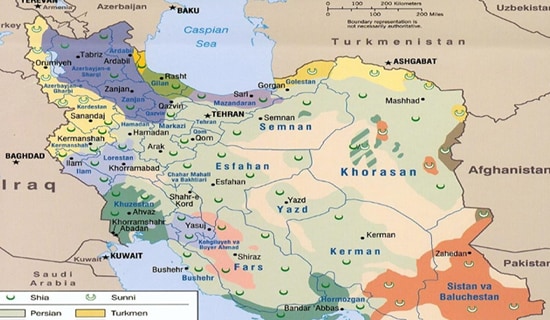Following are excerpts from an interview with Egyptian scholar and novelist Youssef Ziedan, which aired on Mayadeen TV on June 19, 2012.
Click here to view this clip on MEMRI TV.
Interviewer: "You don't consider Osama Bin Laden to be a terrorist, do you?"
Youssef Ziedan: "No. I think that Osama Bin Laden was a poor guy. He was more like a poet, and he was played [like a marionette]."
Interviewer: "You're saying that he was a romantic at heart? Like the romantic warriors?"
Youssef Ziedan: "No, he was a poor guy. My description of him is accurate. When I was writing my latest novel, I delved deep into this intriguing personality. Look at those video-taped messages, brother. Look into his eyes – that broken-heartedness and that deep sorrow do not conform with the personality of a murder or a terrorist. I doubt that Osama Bin Laden ever killed a person in his life."
[...]
Interviewer: "I would like to understand how you can describe somebody like Bin Laden, who recruited thousands of suicide-bombers, or mujahideen, to spread all over the world, until it reached the point of 9/11 in the US... How can you describe him as a poor guy? Can a 'poor guy' have such capabilities?"
Youssef Ziedan: "Osama Bin Laden is 90% 'made in America,' and 10% a romantic desire to revive the Islamic state. His activities have nothing to do with 9/11. That man, who lived in the caves of Tora Bora, was incapable of even organizing a good meal for himself. [9/11] was a very complicated operation. Let's not be so naïve as to believe..."
Interviewer: "Do you support the theories that this operation was organized by others?"
Youssef Ziedan: "Whoever they may have been. I cannot determine who it was. What I am saying is that the man, who was hunted and besieged in the mountain caves, did not have the capability to pull off such an operation. But because he was a poor guy, he was filmed in that famous tape.
"He was an engineer. All he did was to explain to some backward Afghans how the sky-scraper collapsed. He explained how, from an engineering perspective, when a plane hits one of the floors, all the other floors would collapse from the weight..."
Interviewer: "And he was right."
Youssef Ziedan: "Every engineer knows this.
[...]
"Let me tell you something that will upset people."
Interviewer: "Go ahead."
Youssef Ziedan: "The hero of Arabism, our tremendous Egyptian Arab hero, was Gamal Abd Al-Nasser. What he did, in effect, was to divide Egypt and Sudan. He agreed to Sudan's secession from Egypt, even though they are geographically and historically indivisible. And then he went to wage war in Yemen.
"Egypt built the Aswan High Dam, and the country was disconnected from Sudan. This is a dangerous matter. People who know the facts said that it was necessary to link Egypt and Sudan, even if by land. Who built land routes in north Sudan? Osama Bin Laden, at his own expense. He built a route, entirely out of his own money, from Khartoum and Omdurman to Atbara.
"Those heroes should have continued the route in order to establish a link between the two peoples."
Interviewer: Is this to his credit, do you think?
Youssef Ziedan: "Yes, definitely. He went to Afghanistan after having been driven out of Sudan, and after his property was taken from him. All they gave him was a bit of Gum Arabic. They said to him: "We trade in this. Here, take a little." They took him at night, by plane – him and his two wives – and he didn't know where he was headed.
"His own country [Saudi Arabia] refused to receive him, and he had no choice but to go to the caves of Afghanistan. He allowed himself to become the hollow media personality that the Western media wanted him to be, so that it could define the characteristics of the next enemy, after the fall of the USSR.
"Aren't you afraid that they will accuse you of anti-Semitism?"
Youssef Ziedan: "I am more Semitic than them."
Interviewer: "You are a great author and a novelist who has won very many awards. Who knows, one day you may win the Nobel Prize. Many Arab writers work toward this, as you know."
Youssef Ziedan: "Seven or eight years ago, I had a serious dispute with the people in Israel, over the matter of The Protocols of the Elders of Zion, and my views about it. Back then, I was warned by some to smooth things over. I couldn't care less about things calming down. I want to say what I believe to be true. I say what pleases my Lord, as the popular Egyptian saying goes. What Nobel Prize?! I saw Naguib Mahfouz after he won the Nobel Prize. He was suffering."
[...]











